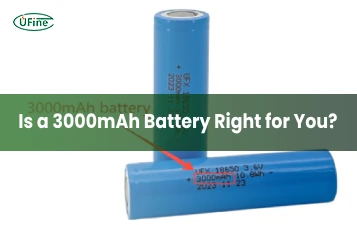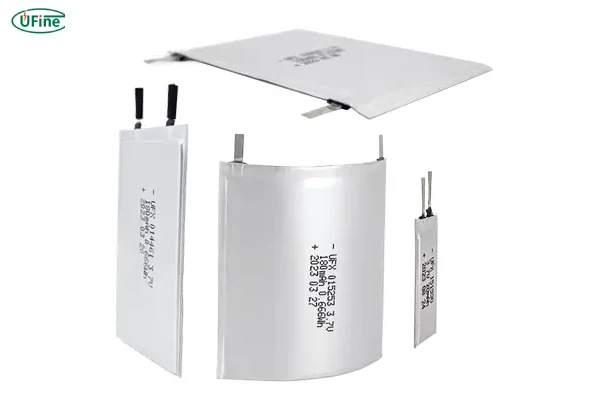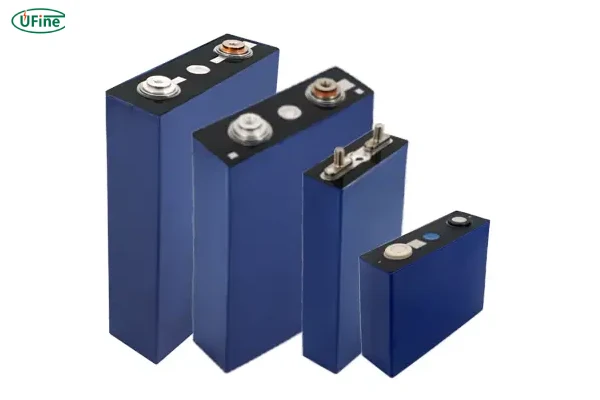Part 1. What is a slim lithium battery?
A slim lithium battery is a type of lithium-ion battery designed with a thinner, compact form factor without sacrificing performance. These batteries offer high energy density and are ideal for applications where space is limited. With their ability to provide reliable power in a small package, slim lithium batteries are becoming increasingly popular in consumer electronics, wearables, and other portable devices.
Their slim profile makes them perfect for devices that require a lightweight and space-efficient power solution. Despite being thinner, these batteries still retain the efficiency and longevity that lithium-ion technology is known for.
Part 2. Types of slim lithium batteries
Slim lithium batteries come in various types, depending on their chemical composition and intended use. Here are the most common types:
-
LiCoO2 (Lithium Cobalt Oxide): Known for high energy density and good thermal stability, LiCoO2 batteries are often used in high-performance electronics, such as smartphones and laptops.
-
LiFePO4 (Lithium Iron Phosphate): These batteries are known for their enhanced safety and long cycle life. They are typically used in applications where reliability and safety are paramount, such as in electric vehicles and solar energy storage systems.
-
LiMn2O4 (Lithium Manganese Oxide): Offering good thermal stability and safety, LiMn2O4 batteries are commonly used in power tools and medical devices. They strike a balance between energy density and cost.
-
LFP (Lithium Phosphate): These are newer, more eco-friendly alternatives that provide excellent cycle life and improved safety, commonly used in renewable energy systems.
Each type has its specific advantages, and choosing the right one depends on the device’s power needs and application.
Part 3. Advantages and disadvantages
Advantages
- Space-Efficient: The slim design allows these batteries to be used in devices with limited space, offering a compact yet powerful solution.
- Lightweight: With their thin profile, these batteries are ideal for portable applications, where weight is a concern.
- High Energy Density: Slim lithium batteries provide more power per unit of volume compared to traditional battery types.
- Long Life Span: Thanks to their robust design, slim lithium batteries typically offer longer lifespans, with more charge/discharge cycles.
- Faster Charging: Many slim lithium batteries are designed to support faster charging speeds, which is a great benefit for portable electronics.
Disadvantages
- Higher Cost: While efficient, slim lithium batteries can be more expensive due to the materials used in their construction.
- Temperature Sensitivity: These batteries can be sensitive to extreme temperatures, which may impact their performance if not used in appropriate conditions.
- Limited Power Output: Due to their compact size, these batteries may not be suitable for high-power-demand applications like large electric vehicles or industrial equipment.
Part 4. Applications
Slim lithium batteries are used in a wide range of applications, particularly where space and weight are crucial. Here are some common applications:
- Smartphones and Tablets: Their small size and high energy density make them perfect for powering mobile devices.
- Wearable Technology: Devices like smartwatches, fitness trackers, and medical wearables benefit from the compact nature of these batteries.
- Laptops and Notebooks: Slim lithium batteries are used in portable computing devices to provide efficient power without adding significant bulk.
- Electric Vehicles (EVs): In smaller electric vehicles or e-bikes, slim lithium batteries are used for their compact form and reliable energy output.
- Medical Devices: Many medical devices like hearing aids and portable life-support equipment use slim lithium batteries for their small size and longevity.
Part 5. Voltage
The typical voltage of slim lithium batteries is 3.7V, which is standard for most lithium-ion cells. This voltage can vary slightly depending on the specific type of lithium chemistry used, but 3.7V is the most common. Some batteries may have multiple cells in series, which increases the voltage for higher-power applications, such as electric vehicles or energy storage systems.
Part 6. Typical capacity range
The capacity of a slim lithium battery typically ranges from 100mAh to 3000mAh, depending on the intended application. For example:
- Small devices like fitness trackers or wireless earbuds usually have batteries around 100mAh to 500mAh.
- Portable electronics like smartphones and tablets typically range from 1000mAh to 3000mAh.
- Larger applications such as electric vehicles may use batteries with a much higher capacity, depending on the specific requirements of the device.
When choosing a slim lithium battery, it’s important to match the battery capacity with the energy requirements of your device to ensure optimal performance.
Part 7. Is a slim lithium battery a deep cycle battery?
Slim lithium batteries can be used as deep cycle batteries, but it depends on their design and the specific requirements of the application. Deep cycle batteries are designed to be discharged deeply and then recharged without causing significant damage to the battery’s capacity. Many lithium-ion batteries, including slim versions, can handle deep discharges, but it’s essential to check the manufacturer’s specifications to ensure they are rated for deep cycling.
Part 8. Is thinner the better with slim lithium batteries?
While a thinner battery might seem like a better option for maximizing space, it’s not always the best choice. As the thickness of a slim lithium battery decreases, the capacity and power output may also decrease. The key is to find the right balance between thickness, capacity, and power needs. For applications requiring high energy density and long battery life, you might need to sacrifice some slimness for better performance.
Part 9. Buying a slim lithium battery: key parameters to consider
When buying a slim lithium battery, here are the key parameters you should consider:
- Capacity (mAh): Choose the right capacity based on the energy requirements of your device.
- Voltage (V): Ensure that the battery’s voltage matches your device’s power needs.
- Cycle Life: Look for a battery that offers a high number of charge/discharge cycles for long-lasting performance.
- Size and Shape: Make sure the dimensions of the battery fit your device or application.
- Safety Features: Opt for batteries with built-in safety features like overcharge protection and thermal management.
- Charging Time: If fast charging is critical, check the battery’s charging specifications.
Part 10. Conclusion
Slim lithium batteries are the future of compact, efficient power solutions. With their thin design, high energy density, and long lifespan, they are perfect for a variety of applications, from portable electronics to electric vehicles. When selecting a slim lithium battery, it’s essential to consider factors like voltage, capacity, and application-specific needs to ensure you’re getting the best performance for your business or personal needs.
At Ufine Battery, we specialize in providing high-quality slim lithium batteries designed for diverse applications. Contact us today to learn more about our products and how we can help meet your energy storage needs.
Related Tags:
More Articles

Is a 3000 mAh Lithium Battery Enough for Your Device?
Wondering what a 3000mAh battery means? Learn about its power, lifespan, types, and how to choose the best one for your device!
Learn About Lithium Battery Kits
Discover the ultimate guide to lithium battery kits—types, safety, installation, and cost analysis. Make the right choice for solar, RV, or off-grid power!
Selecting the Perfect Ah for Your 48V Li-ion Battery Pack
Struggling to choose the right Ah for your 48V Li-ion battery pack? This in-depth guide covers everything you need to make the best choice. Find out more now!
LiFePO4 Pouch Cells Explained: Advantages, Applications & Comparison
Learn all about LiFePO4 pouch cells, their structure, lifespan, advantages, and how they outperform other lithium battery types. Make the right choice!
12Ah Lithium Battery Guide: Uses, Lifespan & Tips
12Ah lithium batteries last longer, charge faster & weigh less than lead-acid. See best uses, charging tips & how to extend lifespan!





